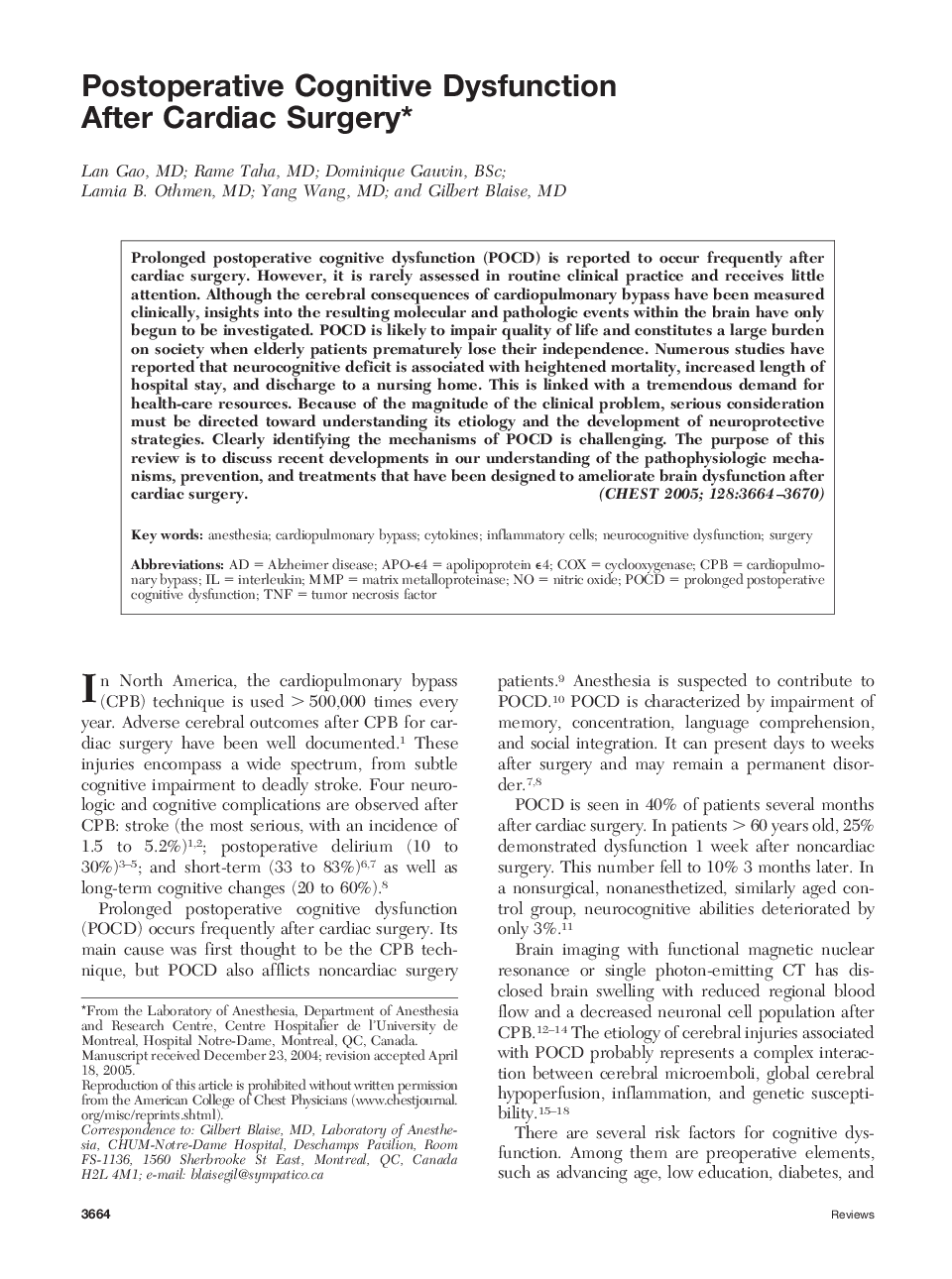| Article ID | Journal | Published Year | Pages | File Type |
|---|---|---|---|---|
| 2906116 | Chest | 2005 | 7 Pages |
Prolonged postoperative cognitive dysfunction (POCD) is reported to occur frequently after cardiac surgery. However, it is rarely assessed in routine clinical practice and receives little attention. Although the cerebral consequences of cardiopulmonary bypass have been measured clinically, insights into the resulting molecular and pathologic events within the brain have only begun to be investigated. POCD is likely to impair quality of life and constitutes a large burden on society when elderly patients prematurely lose their independence. Numerous studies have reported that neurocognitive deficit is associated with heightened mortality, increased length of hospital stay, and discharge to a nursing home. This is linked with a tremendous demand for health-care resources. Because of the magnitude of the clinical problem, serious consideration must be directed toward understanding its etiology and the development of neuroprotective strategies. Clearly identifying the mechanisms of POCD is challenging. The purpose of this review is to discuss recent developments in our understanding of the pathophysiologic mechanisms, prevention, and treatments that have been designed to ameliorate brain dysfunction after cardiac surgery.
